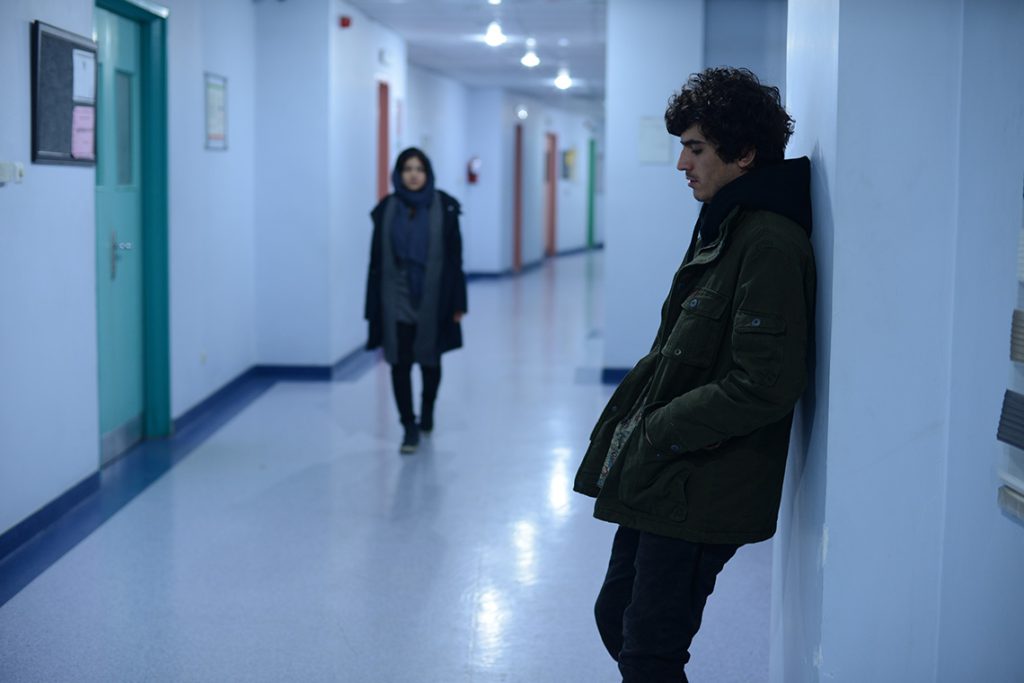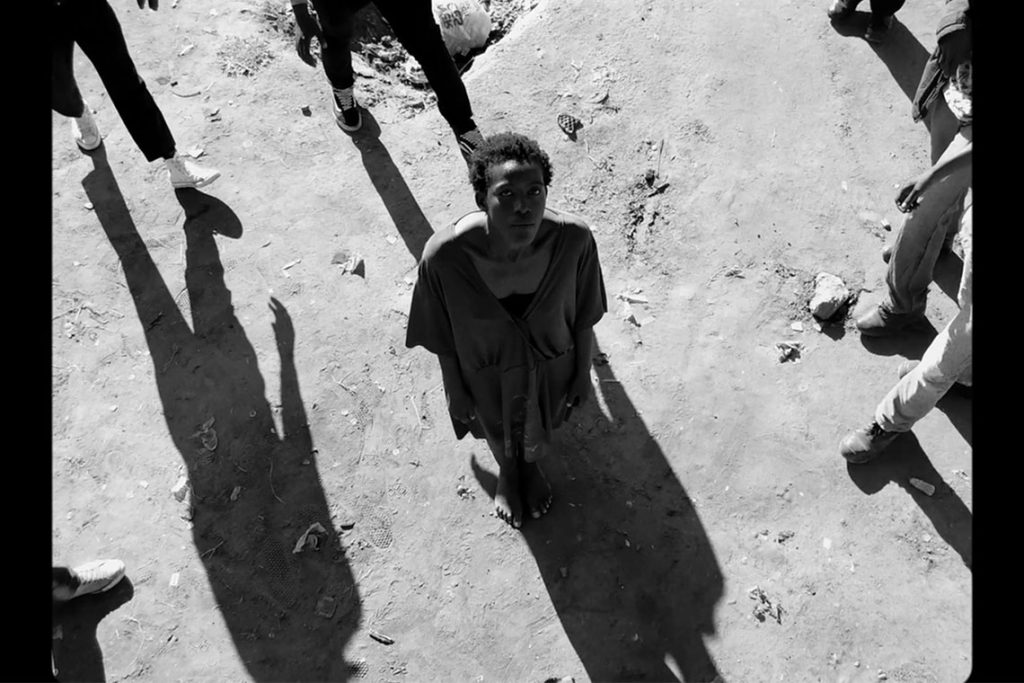The Qatar Museums group show Your Ghosts Are Mine – Expanded Cinemas, Amplified Voices takes on Venice and quietly demands its own time zone.
Venice is nothing short of ghosts. Even amidst the unparalleled conquest of the city with thousands of biennial early-lookers in the spring, La Serenissima submits itself to a haunted stillness after hours – canals become placid and cobblestones unstomped. Qatar Museums’ exhibition Your Ghosts Are Mine – Expanded Cinemas, Amplified Voices fills the Palazzo Franchetti with tens of films that traverse the palace’s ornate rooms like spectres. The dimly lit venue is bound with a maze-like chambers, each playing a loop of content from the Middle East and larger Global South. They are separated by thematic angles, such as borders, ruins, women’s stories, the desert or exile. The show suggests a loner experience – even those who start the show with a companion find themselves meandering around the palace alone, at their own pace and configuration. Letting go, perhaps, is the ideal determination for the visitors to find their own adventure and allow the voices, places and faces in each room determine their time. Inside the dark rooms, large screens beam with moving images, with a flamboyant chandelier suspended from the ceiling. The towering light fixtures penetrate into our view of the films as a reminder of the place and its ghostliness.

Enter ‘There Are No Empty Spaces’, a room which unites a group of films that take place in the desert in one way or other, and explore the dry habitat’s hallucinatory sandiness and how protagonists find themselves roaming the endless topographies in search of the self. Shirin Neshat and Shoja Azari’s Land of Dreams (2021) follows the otherworldly journey of a woman on a mission to record the American dream to control the arid world, with her voyage around the barren lands of the American West taking her to unending hills of desert. Surreality also lingers in Ali Cherri’s The Dam (2022), in which a worker at a colossal hydroelectric dam in Sudan processes his monotonous days through the nocturnal venture of building a tower out of mud. As sand provides him with a source of life, his mammoth creation grows parallel to the protests outside against the Sudanese dictatorship. Long and stretchingly dry landscapes on the screen fall into an unexpected harmony with the room’s burning red walls.
The theme of fire recurs in ‘The Flame of Resistance’, where Lemohang Jeremiah Mosese’s Mother I’m Suffocating. This is My Last Film About You (2019) is a metaphor for an ever-burning yearning, in this case for the artist’s mother. The film follows a woman carrying a cross on her back throughout the streets of a town in Lesotho, cutting through passersby who condemn her like a Magdalene. Meditating on memory, familial bond and pietà, the sequence is a chilling watch inside the palatial comfort of the architecture.
In another room, Wael Shawky – who also represents the Egyptian Pavilion this year (see page 52) – delves into the chemical alchemy of film in Al Araba Al Madufa III (2015). The third and final segment of the artist’s trilogy, the work uses the aesthetic of the film negative to show child actors captivated by curiosity and illusion in the titular Egyptian town. They dig for treasures and ruminate on myths. “When tomatoes were bluish-purple in colour,” one child dressed in adult attire tells the other with a fake moustache. The film’s blinding negative aesthetic veils the already-fantastical promise with a visual incredibility.

Borders are explored, crossed and challenged in the room ‘One Day The War Will Be Over’, which includes work around politicised lines between geographies and people. Randa Maroufi’s Bab Sebta (Ceuta’s Gate) (2019) looks at the titular land in Morocco governed by Spain as an autonomous city. The 19-minute video spans the experiences of those waiting in line to cross what is considered locally as the “doorway to Europe”, as well as the enforcement that polices their being and that of the traffickers being interrogated by them. Bodies, goods and ambitions exist on a standstill, neither here or there.
‘Where The Hearts Open’ brings together films that narrate women’s stories from different geographies that include Turkey, Libya, Algeria and Cambodia. Mustang (2015), which was directed by Turkish-French filmmaker Deniz Gamze Ergüven and nominated for the Best Foreign Language Academy Award, tells the story of five young girls in a Turkish village on the coast of the Black Sea as they defy patriarchal hegemony and reclaim freedoms that their oppressive family denies them. Besides the intricate depiction of Ergüven’s coming-of-age femininity, Ali Asgari’s long feature Disappearance (2017) explores a relationship between a young man and a woman in Iran while they seek medical treatment for the woman. The perpetual refusal by hospitals to treat her haemorrhage leads the couple to question their joint existence in an entrapping society.
Time is precious in a city like Venice, especially during the Biennale, when each turn to a narrow street brings another exhibition. Your Ghosts Are Mine is an unusual feat, with the time that it demands and the broad plethora of moving images it delivers in return. Leave your daily clock outside before entering through the door, slow down and plunge into what chance puts before you.



